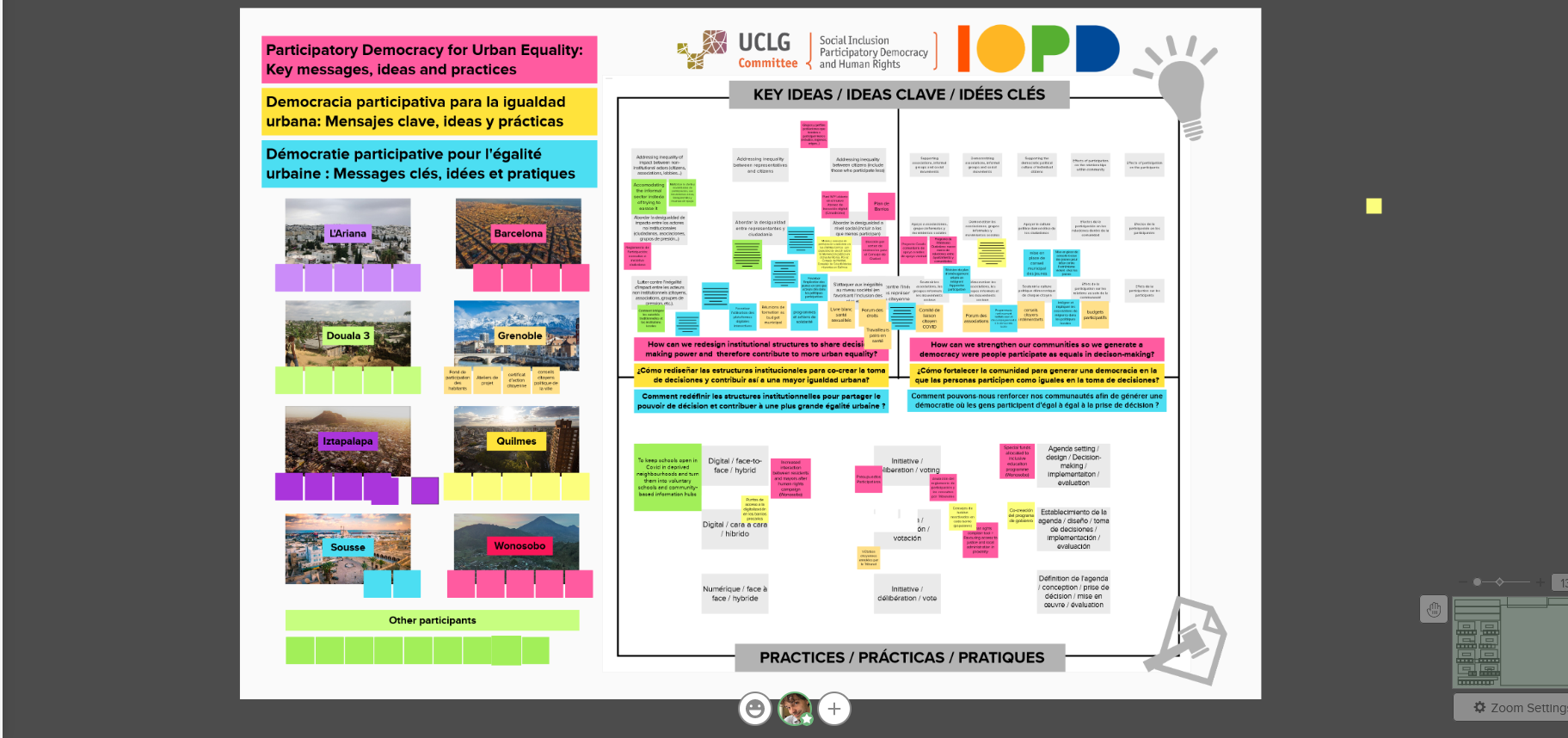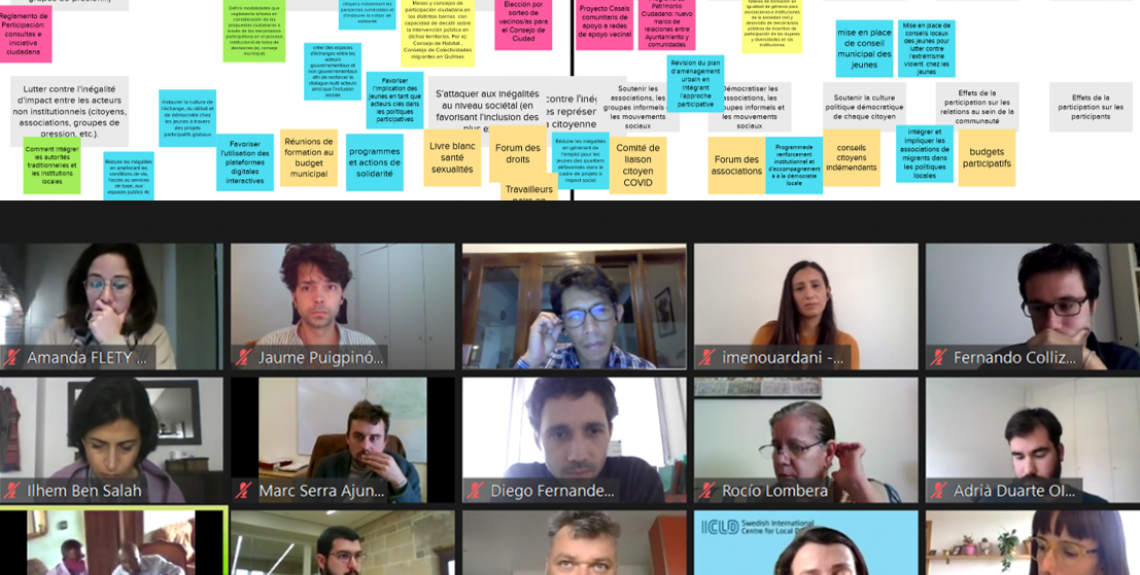Local governments adopt participatory democracy practices to empower civil society, better include marginalized groups and build more accountable and inclusive institutions. Therefore, participatory democracy is many times seen as a meaningful tool to advance urban equality.
In order to bring political approaches and practical knowledge by local leaders on this very relevant issue for local democracy to the forefront, the UCLG-CSIPDHR and the IOPD organized last 18 March a workshop among several of its members. Contributions to the event identified emerging priorities and policies linked to topical issues such as the COVID-19 crisis and the digital transformation.
These will help build a meaningful, joint contribution to the GOLD VI Report on Urban Equality and help to identify current challenges of participatory democracy from the perspective of local governments.
The workshop was marked by the regional diversity and approach variety of participants involved. Tunisian local government representatives from Sousse and L’Ariana focused on the challenges of strengthening local democratic institutions while fostering citizens’ civic engagement in the context of a still relatively recent democratization process.
Douala 3 in Cameroon and Iztapalapa in Mexico stressed the importance of decentralizing participatory democracy processes at the level of neighbourhoods, while the Indonesian regency of Wonosobo highlighted the role of proximity mechanisms for direct accountability - an especially relevant innovation if one thinks on local human rights guarantee.
Participants highlighted how their cooperation with civil society groups was crucial for deepening local democracy and strengthening residents’ civic engagement, according to a local citizenship perspective.
This was the case of Grenoble, in France, and Barcelona, in Spain. Both cities built on their advanced cooperation schemes with civil society, grassroots organizations and human rights defenders to foster inclusiveness in participatory democracy mechanisms. A representative from Quilmes, peripheral city in Argentina, also referred to this issue in connection to his city’s efforts to empower marginalized groups and upgrade especially deprived urban areas.
Locally advancing equality and social justice
The role of institutional transformation and community strengthening
In exploring how local government practices aim at building urban equality, Laura Roth, expert in charge of writing GOLD VI’s contribution, argued how local efforts tend to follow a twofold relationship:
- One seeing the strengthening of democracy as instrumental to achieve urban equality (even though “democratic decisions” also produce inegalitarian outputs)
- Another one seeing equality as instrumental for democracy and political participation (tackling for instance the fact that marginalized groups tend to participate less).
In conclusion, Roth recalled that democracy represents also a form of political equality in itself, if one thinks, for example, of inequalities between political actors or representatives and represented residents.
With this in mind, an interactive Mural exercise allowed participants to identify their own approaches to the questions “how to redesign local institutional structures to share decision making power” and “how to strengthen communities so that people participate as equals”. This helped to address these various questions in a more integrated manner.

Facing COVID-19 and digital transformation
The role of participatory democracy in powering urban transformation
Participants placed an important emphasis to addressing how the COVID-19 crisis impacted their work and priorities.
Indeed, the crisis caused by the pandemic highlighted local efforts of inclusion and strengthened partnership with civil society as a way to address the renewed demands of residents and most affected communities. The current scenario also propelled local governments to transform the way they carried out policies, taking for instance a more proactive and affirmative approach, establishing proximity accountability mechanisms or embracing digital technologies.
Even though most participants praised the role of digital technologies to maintain participatory democracy at a time of global pandemic, they also emphasized how physical participation cannot be replaced either due to its social function.
Links with the GOLD VI process
Given the meaningful substance of all contributions, key ideas and innovative practices shared throughout the event, the UCLG-CSIPDHR and the IOPD are now ready to contribute to the GOLD VI Report on Urban Equality by building on their members’ viewpoints on the subject. Both organizations will draft, in cooperation with expert Laura Roth, an extensive contribution to the Report reflecting on “the role of participatory democracy practices in advancing urban equality”.
The GOLD VI Report will address the inequality crisis and its multiple dimensions at the local level. In doing so, it aims to shed light on emerging responses by local governments, focused on building more inclusive and equitable cities. By addressing approaches adopted by both local governments and civil society, it particularly aims to identify innovative solutions, to explore key issues and to see how these relate to particular, key urban populations.
The Report will be published in 2022 on the occasion of the UCLG World Congress with the aim of shaping UCLG’s discourse and agendas on urban equality. You can know more about this process here.


